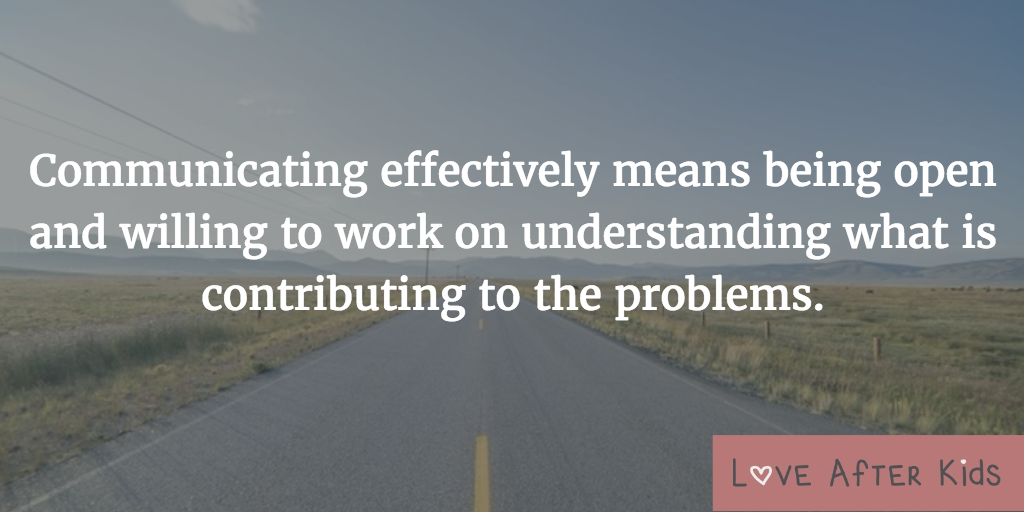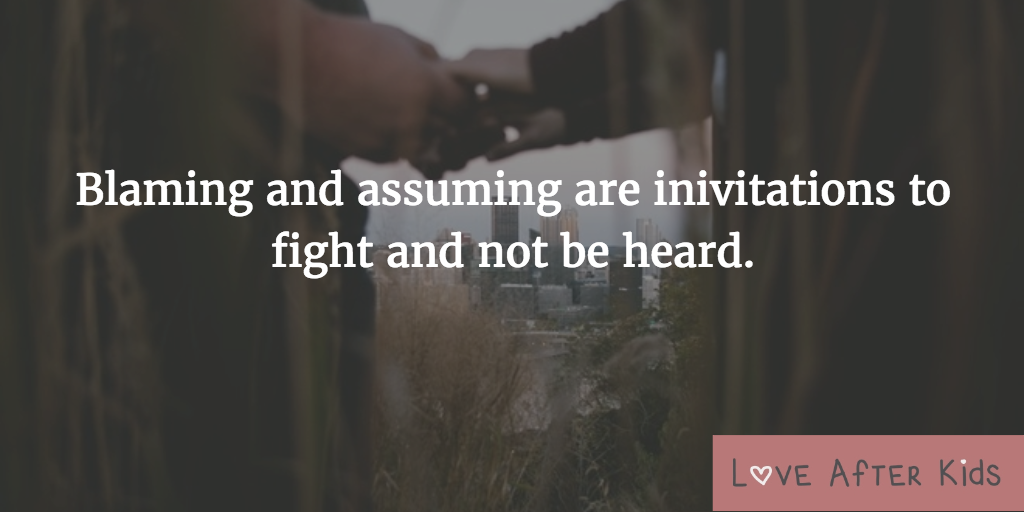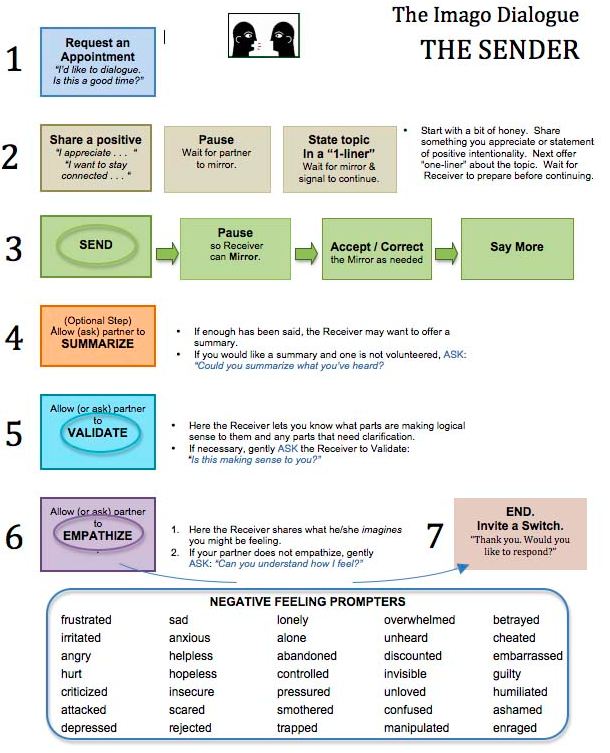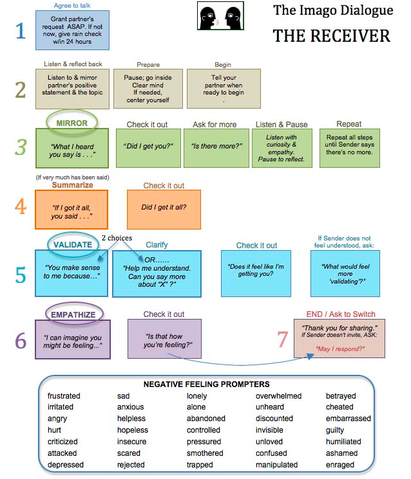The less you rely on your partner, the less connected you feel to your own needs and to their needs. This is because needs are inherently relationship bound. You need things from your partner, your environment, your friends, your workplace and your family. As you subjugate your needs, that space can grow to become filled by resentment, deprivation and negative assumptions.
The longer this persists, the more entrenched you become in these patterns.
The more deprived you feel, the less likely you are to give. It turns into a competition over who does more, who gives more, and who suffers more.
In this article you will learn several practical ways to end this vicious cycle. To start, allow me to offer a couple of foundational tips for communicating effectively with your partner:
- Timing matters! Don't choose a time when your partner is exhausted, or has just come back from work, or is about to fall asleep, or is watching his favorite program.
- Try to think beforehand about what you need, and what you want to get from the conversation.
Self-sabotage
When you expect to not get what you want, you’ll tend to act in a way that confirms that negative expectation, which then creates a self-fulfilling prophecy.
Wait a second (you may be thinking). Why would I sabotage my own needs?!?! This is such a crucial question to think about. It's not rational. It's not conscious. But there is a specific kind of satisfaction that's derived from proving you are right about being a victim... that your needs won't be met.
Such “pleasure” can be so strong that it overrides the underlying need.
In other words, it becomes more important to confirm your deprivation than to actually get what you need and want. This is known as the confirmation bias, which is the tendency to search for information that proves what you already think. This sabotaging part does not expect her needs to be met. It's like “the devil you know.”
People are often shocked when I explain this concept. They don't believe that they would do such a thing... but it's common human behavior. It doesn't mean that you have a “bad” relationship. Nor does it mean that you have multiple personalities. It means you need to work on how to communicate effectively.
Communicating effectively means being open and willing to work on understanding what is contributing to the problems. Work at understanding your own role, triggers and what you may inadvertently be doing to antagonize your partner.
Understanding parts
Child mode - Most of us suffer early emotional injuries from the people close to us. As children, we do not have the ability to process or understand these experiences, so we developed automatic internal responses to defend against them.
Protector mode - These are the internal soldiers that are trained to protect us. Unfortunately, they are not very amenable to laying down their arms when the threat is over. They are more like veterans with PTSD that continue to look for threats in the environment even when there are none.
Healthy adult mode - The goal of therapy is to strengthen the healthy adult and convince the protectors that it is safe to relax the defenses to access the vulnerable child.
When we feel like we are under threat, misunderstood, attacked, not seen, heard, or taken care of, that is fertile ground for the protectors to take the reins. Protectors tend to be either quite aggressive or avoidant. For couples who are struggling, they are sometimes stuck where one of the members is distant and withdrawn, and the other is anxious and pursuing. This is an example of the protector in control.
It's never one person's fault. It’s foolish and futile to think that such complex dynamics can be boiled down in such a way.
The focus of each member of the couple has to turn from blaming the other, towards self reflection:
- What am I bringing to the table?
- What am I doing that keeps my needs from being met?
- How am I blaming him/her?
- How am I triggering him/her?
- Do I know what my needs are?
- Do I know what I really want?
- When was there a time when my needs were met?
These are rhetorical questions more than anything. It's not really about coming to an answer, but it's the process of asking the questions that's so important. If both members of the couple can get interested and curious in their own dynamics, there's hope for significant change in communication.
Imago Therapy
For the sender:
- Only use ‘I’ statements. Speak to your own experience and feelings only. Remember that blaming and assuming are invitations to fight, and not be heard.
- Start off by emphasizing that the reason you want to talk about this is because you value the relationship, or because you don’t want resentment to build, or because you want him to understand you. This creates a safer space and sets a tone for cooperating versus criticizing.
- Try and read your partner’s body language and reactions. Are you flooding him with too many words/thoughts/feelings all at once? You can check in to see if it feels like too much.
For the receiver:
- Don’t interrupt.
- Resist the temptation to respond with defensive explanations, denial, or with your own interpretation of events. This can quickly turn into a back and forth blame game.
- Reflect back what you heard, in as neutral a way as possible, using as many of the words your partner used in describing his experience.
- If you didn’t get part of it right, make sure he lets you know, so that you can reflect back again.
- Validate him even if you disagree. You don’t have to be on the same page to say you can understand why he is feeling what he is feeling.
- Empathize. This takes the validation a step further. Again, you don’t have to agree with him. Just try to imagine how this experience and his feelings are impacting him.
- End with thanking each other for sharing and listening.






 RSS Feed
RSS Feed